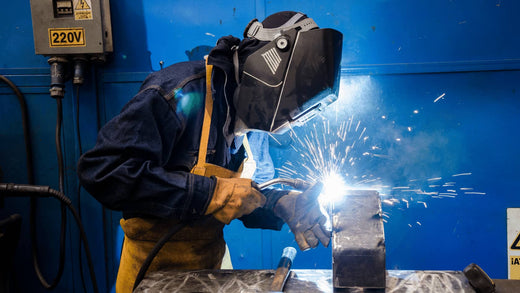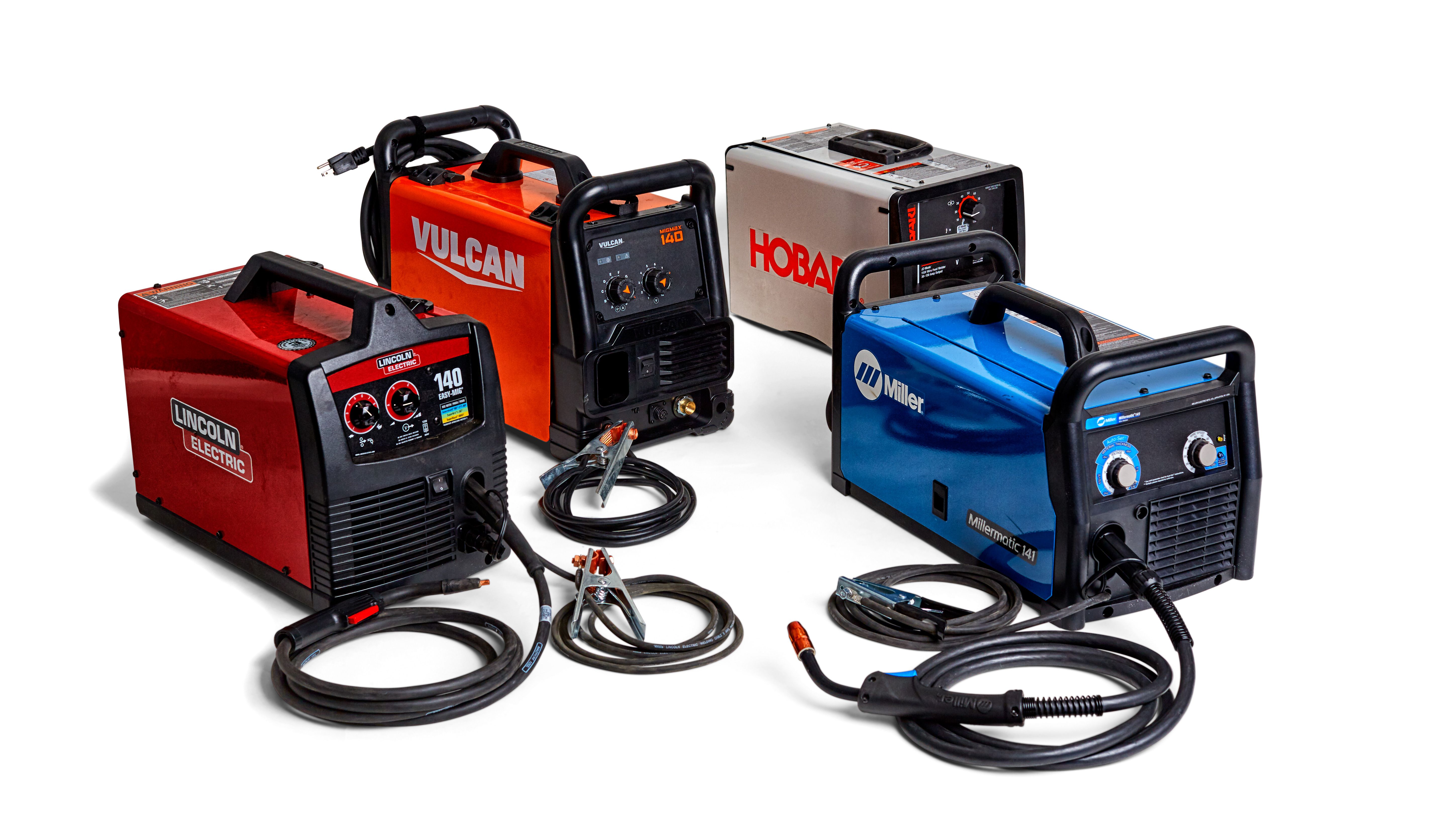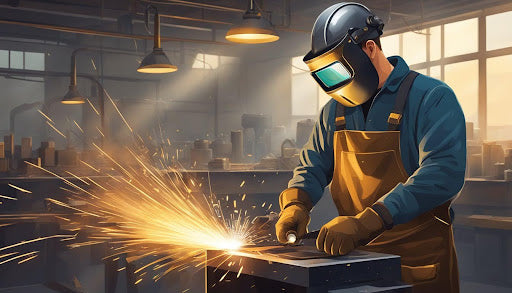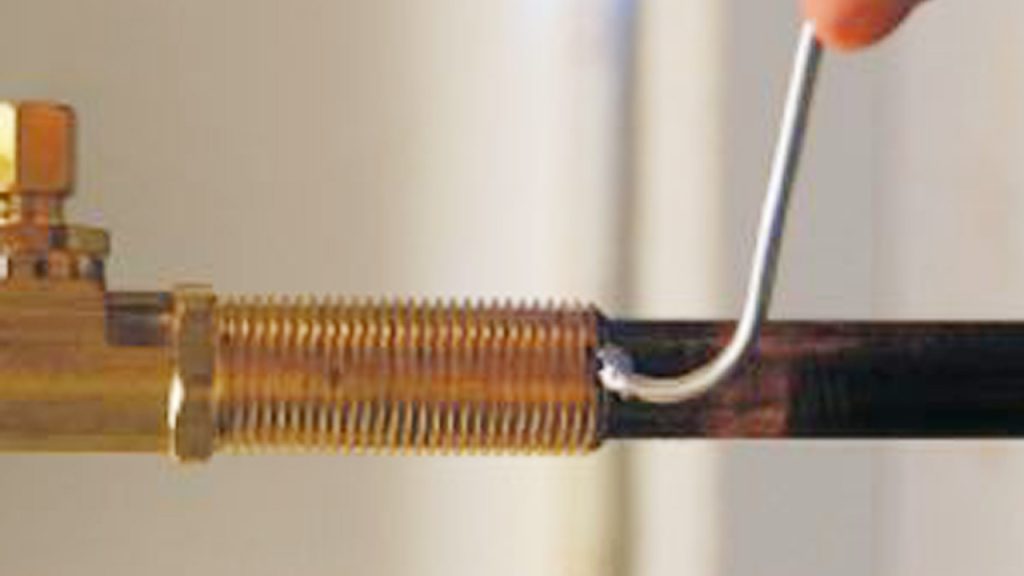Finding the best welder for home use can be challenging. Many options exist, each with different features and benefits.
Whether you are a DIY enthusiast or a hobbyist, choosing the right welder is crucial. The perfect welder can make your projects easier and more enjoyable. But with so many choices, it can be overwhelming. From MIG welders to TIG and stick welders, understanding what suits your needs is key.
Factors like ease of use, safety, and versatility play important roles. In this guide, we will explore what to look for in a home welder. By the end, you will have a clear idea of the best welder for your home projects. Let’s dive in and find the perfect match for your welding needs.

Credit: www.arccaptain.com
Introduction To Home Welding
Welding at home has become a popular hobby and skill. It allows individuals to create, repair, and customize metal projects. Home welding provides many benefits, from cost savings to personal satisfaction. This introduction will explore the basics and benefits of home welding.
Benefits Of Home Welding
Home welding offers several advantages. First, it saves money on repairs. Instead of hiring a professional, you can fix metal items yourself. This can include broken gates, fences, or machinery.
Second, welding at home boosts creativity. You can build custom furniture, art pieces, or other metal projects. This allows for personal expression and unique creations.
Third, learning to weld can improve job prospects. Welding skills are in demand in many industries. Having this skill can open doors to new career opportunities.
Lastly, welding at home can be satisfying. Completing a project with your own hands feels rewarding. It provides a sense of accomplishment and pride in your work.
Common Diy Welding Projects
Many DIY welding projects are simple yet useful. One common project is creating metal furniture. You can build tables, chairs, or shelves that are sturdy and unique.
Another popular project is making garden art. Welders can create sculptures, plant stands, or decorative gates. These projects add charm and character to outdoor spaces.
Home repairs are also frequent welding tasks. Fixing broken metal items like railings or tools can save money. It also helps prolong the life of these items.
Finally, many people enjoy building custom vehicles. This includes bikes, go-karts, or even small trailers. Welding allows for strong, durable, and personalized builds.

Credit: prodea.com.ar
Types Of Welders For Home Use
When it comes to tackling welding projects at home, understanding the different types of welders available is crucial. Whether you’re a beginner or have some experience, picking the right welder can make all the difference in your DIY projects. Let’s dive into the three main types of welders for home use: MIG, TIG, and Stick welders.
Mig Welders
MIG welders, or Metal Inert Gas welders, are perfect for those who are just starting out. They are easy to use and offer smooth, clean welds. Here’s why:
- User-friendly: MIG welders are often considered the easiest type of welder to learn. They use a continuously fed wire, which makes the process straightforward.
- Versatile: They work well on various metals, including aluminum and steel. So, whether you’re fixing a bike frame or crafting a metal sculpture, MIG welders got you covered.
- Speed: MIG welding is fast, which is great when you have a long list of home projects.
For instance, when I first tried welding, I used a MIG welder. It was like the training wheels of welding—smooth sailing all the way!
Tig Welders
TIG welders, or Tungsten Inert Gas welders, are a bit more advanced but offer precision that’s unmatched. Here’s what you need to know:
- Precision: TIG welders are perfect for detailed work. If you’re working on delicate projects, like jewelry or intricate metal designs, a TIG welder is your best friend.
- Clean Welds: They produce very clean and strong welds. There’s less spatter, which means less cleanup afterward.
- Control: TIG welding allows you to control the heat and the filler material separately, providing excellent control over your work.
Remember the time I tried to fix a stainless steel sink? The TIG welder’s precision saved the day, and my kitchen from becoming a waterpark!
Stick Welders
Stick welders, also known as Shielded Metal Arc Welding (SMAW), are known for their simplicity and power. Here are the highlights:
- Durability: Stick welders are tough and can handle dirty or rusty surfaces. They’re great for outdoor projects where conditions aren’t perfect.
- Cost-effective: They are typically cheaper and have fewer parts, which means less maintenance.
- Flexibility: These welders are versatile and can weld a variety of metals, including iron and steel.
Once, I had to repair a rusty old gate in my backyard. The stick welder cut through the rust like a hot knife through butter. It was a lifesaver!
In conclusion, choosing the right welder for your home projects depends on your needs and experience level. Whether it’s the ease of a MIG welder, the precision of a TIG welder, or the ruggedness of a Stick welder, there’s a perfect tool out there for you. Happy welding!
Key Features To Consider
When considering the best welder for at-home use, it’s essential to know which features to look for. Whether you’re a hobbyist, a DIY enthusiast, or someone looking to tackle small household projects, the right welder can make all the difference. Let’s dive into the key features you should consider when choosing a welder.
Power Requirements
First things first, power requirements. Not all welders are created equal when it comes to power. Some need more juice than others. For home use, you want to ensure that your welder can run on the typical household electrical outlets, usually around 110-120V. If you’re fortunate enough to have a dedicated 220V outlet, you can opt for more powerful machines. Here’s a quick breakdown:
- 110-120V Welders: Ideal for small projects and light-duty work. Perfect for beginners.
- 220V Welders: Suitable for heavier tasks and thicker materials. Great for more advanced users.
Always check the welder’s manual to see the recommended power source. You don’t want to trip your breakers or cause any electrical mishaps!
Portability
Now, let’s talk about portability. If you’re like me, you might not have a dedicated workshop space. Being able to move your welder around easily is a huge plus. Consider these factors:
- Weight: Look for lightweight models if you plan to carry the welder to different locations.
- Size: Compact designs are easier to store and transport.
- Handles/Wheels: Some models come with built-in handles or wheels, making mobility a breeze.
Picture this: you’re working on your car in the driveway, and then you need to fix a gate in the backyard. A portable welder makes these transitions smooth and hassle-free.
Ease Of Use
Last but certainly not least, ease of use. No one wants to spend hours figuring out how to operate a welder. Here are some features that can make your life easier:
- Clear Instructions: A good welder comes with a manual that even your grandma could understand.
- Simple Controls: Look for models with straightforward settings and controls.
- Automatic Features: Some welders have auto-adjust features for voltage and wire feed, which can be a real game-changer for beginners.
Imagine setting up your welder and getting it right on the first try! No fiddling, no frustration, just smooth, seamless welding. That’s the dream, isn’t it?
By considering these key features – power requirements, portability, and ease of use – you can find the best welder for your home projects. Happy welding!
Top Mig Welders For Diy Projects
Choosing the right MIG welder for your DIY projects can be daunting. You need a machine that is easy to use and reliable. Whether you are on a budget or just starting, finding the perfect welder is key. Below, we will discuss some top options for home use.
Budget-friendly Options
Finding a good MIG welder without breaking the bank is possible. One great option is the Forney Easy Weld 261. It offers versatility and ease of use. Another budget-friendly choice is the Hobart Handler 140. It is known for its durability and strong performance. Both options are affordable and reliable for home projects.
Best For Beginners
If you are new to welding, you need a user-friendly machine. The Lincoln Electric K2185-1 is perfect for beginners. It is compact and easy to handle. Another excellent choice is the Lotos MIG140. It has simple controls and delivers consistent results. These welders are great for starting your welding journey.
Top Tig Welders For Home Use
Looking for a TIG welder for your home projects? You’ve come to the right place! TIG welders are great for precise and clean welds, perfect for DIY enthusiasts and hobbyists. They might seem complicated at first, but with the right model, you’ll be welding like a pro in no time.
High-precision Models
For those who crave accuracy in their welding projects, high-precision TIG welders are the way to go. These models are designed to provide you with clean, precise welds every time.
| Model | Features | Price |
|---|---|---|
| Lincoln Electric Square Wave TIG 200 |
|
$1,299 |
| Everlast PowerTIG 210EXT |
|
$1,499 |
Versatile Choices
Maybe you’re looking for something more versatile? These TIG welders offer flexibility, allowing you to tackle different types of materials and projects. Perfect for those who love variety in their work.
| Model | Features | Price |
|---|---|---|
| Hobart EZ-TIG 165i |
|
$1,199 |
| YESWELDER TIG-250P |
|
$399 |
Choosing the right TIG welder can make all the difference in your home welding projects. Whether you prioritize precision or versatility, there’s a model out there perfect for your needs. Don’t be afraid to invest a little more if it means getting the features that will help you work better and enjoy your hobby even more.

Credit: www.arccaptain.com
Top Stick Welders For Diy Enthusiasts
Stick welding is a great skill for DIY projects. It is simple and versatile. Here, we explore some of the best stick welders for home use. These options cater to different needs and budgets. Whether you want a durable machine or an affordable pick, we have you covered.
Durable And Reliable
Durability is crucial for stick welders. You want a machine that lasts. One option is the Lincoln Electric K1170. It is known for its toughness. This welder handles heavy-duty work with ease. It also has a long lifespan, making it a great investment.
Another reliable choice is the Hobart 500570 Stickmate. This welder is built to last. It offers consistent performance and can handle various projects. Its sturdy build ensures you get many years of use.
Affordable Picks
Budget is important for many DIY enthusiasts. Fortunately, there are affordable stick welders available. The Forney Easy Weld 298 is a great option. It is budget-friendly but still performs well. This welder is easy to use, perfect for beginners.
Another affordable choice is the Amico ARC-160D. It offers good performance at a low price. This welder is compact and portable. It is ideal for small home projects. Both of these options provide value without breaking the bank.
Safety Tips For Home Welding
Welding at home can be a rewarding hobby. However, it’s important to prioritize safety. Without proper precautions, you risk injury or damage. Always follow safety guidelines to protect yourself and your surroundings.
Essential Safety Gear
Wearing the right gear is crucial. A welding helmet shields your eyes from sparks and bright light. Choose a helmet with a proper shade rating. Gloves protect your hands from burns. Leather gloves are best as they resist heat and sparks. Long sleeves and pants made of flame-resistant material are essential. They prevent skin exposure to hot metal and sparks.
Steel-toed boots safeguard your feet from falling objects. Ear protection helps avoid hearing damage from loud noises. A fire-resistant apron offers extra protection for your torso. Keep a fire extinguisher nearby. It’s a must-have for any welding project.
Proper Ventilation
Good ventilation is vital. Welding creates fumes that are harmful if inhaled. Ensure your workspace has fresh air flow. Open windows and use fans to circulate air. This helps disperse fumes and smoke. A local exhaust system can also remove harmful particles.
If you work in a confined space, use a respirator. It filters out toxic fumes. Always check the filter type to match the materials you are welding. Never weld in closed areas without ventilation. This can lead to serious health risks.
Conclusion And Final Recommendations
Choosing the right welder for home use can be overwhelming. There are many options available. Each welder offers different features and benefits. Understanding your needs is key to making the best choice. Here, we provide a final summary of our top picks and some tips for choosing the right welder for you.
Summary Of Top Picks
We reviewed several welders suitable for home use. Our top picks include the following:
- The Hobart Handler 140: Best for beginners. Easy to use and versatile.
- The Lincoln Electric K2185-1: Compact and portable. Great for small projects.
- The Forney Easy Weld 261: Budget-friendly option. Reliable for light to medium tasks.
These welders provide good performance and value. They cater to different needs and skill levels.
Tips For Choosing The Right Welder
Consider these tips when choosing a welder:
- Identify your welding needs. What materials will you work with?
- Determine your budget. Welders come in various price ranges.
- Check the welder’s power requirements. Ensure it matches your home’s power supply.
- Look for user-friendly features. Especially if you are a beginner.
- Read reviews and ratings. Learn from other users’ experiences.
By following these tips, you can make an informed decision. Choose a welder that suits your needs and budget.
Frequently Asked Questions
What Type Of Welder Is Best For Home Use?
A MIG welder is best for home use. It’s user-friendly and versatile for various projects. It works well on thin metals.
Which Welding Machine Is Good For Home Use?
The Forney Easy Weld 140 MP is great for home use. It offers versatility, ease of use, and reliable performance.
What Is The Best Welder For A Beginner?
The best welder for a beginner is the Hobart Handler 140. It is user-friendly, versatile, and affordable.
Should A Beginner Use A Mig Or Arc Welder?
A beginner should use a MIG welder. It is easier to learn and provides cleaner welds. ARC welders require more skill and practice.
Conclusion
Choosing the best welder for home use requires careful consideration. Think about your needs and budget. Review the options we discussed. Each welder has unique features. Match the welder to your projects. Safety and ease of use are crucial. With the right welder, your DIY projects can shine.
Invest in quality tools for better results. Happy welding!

